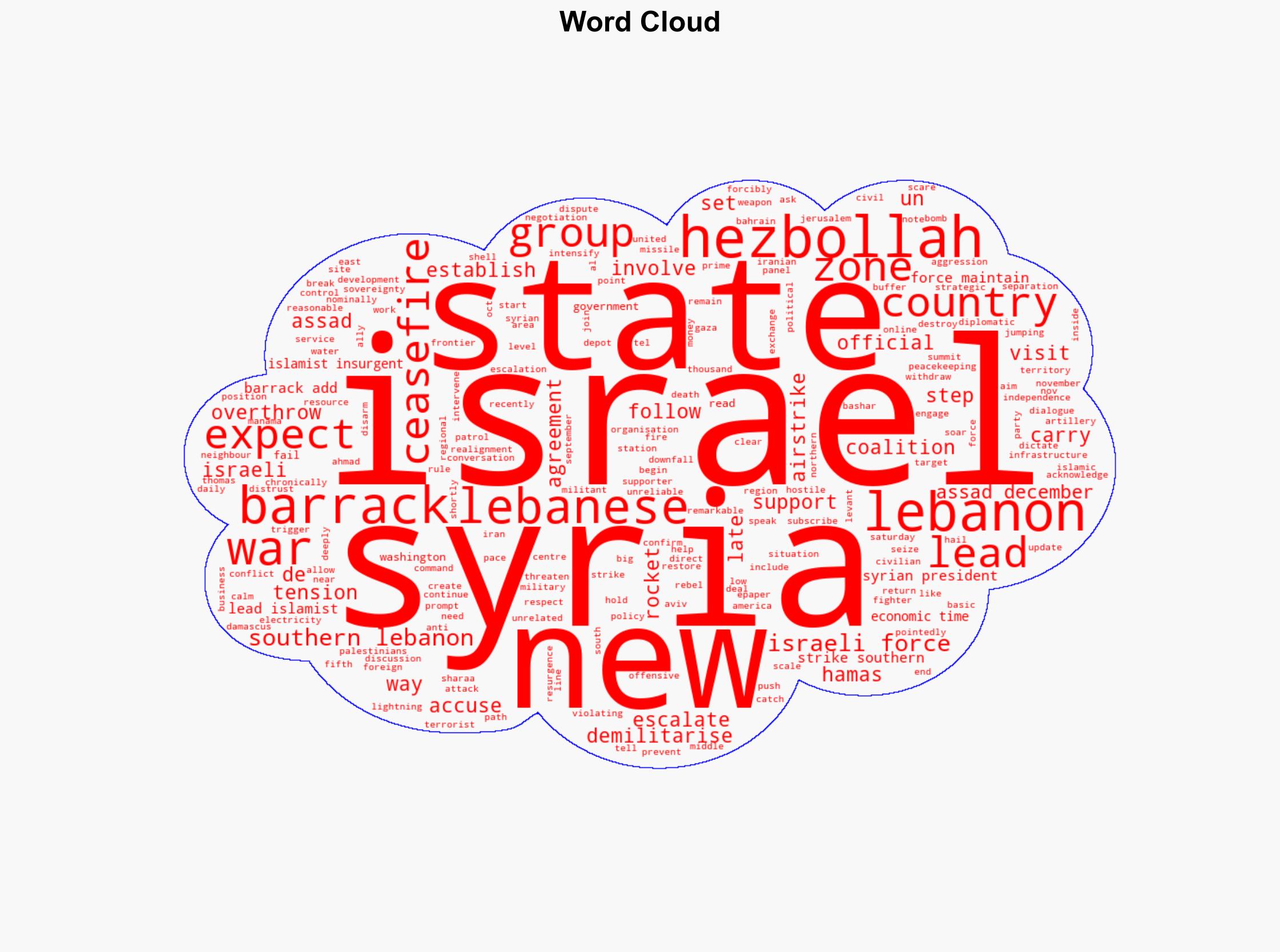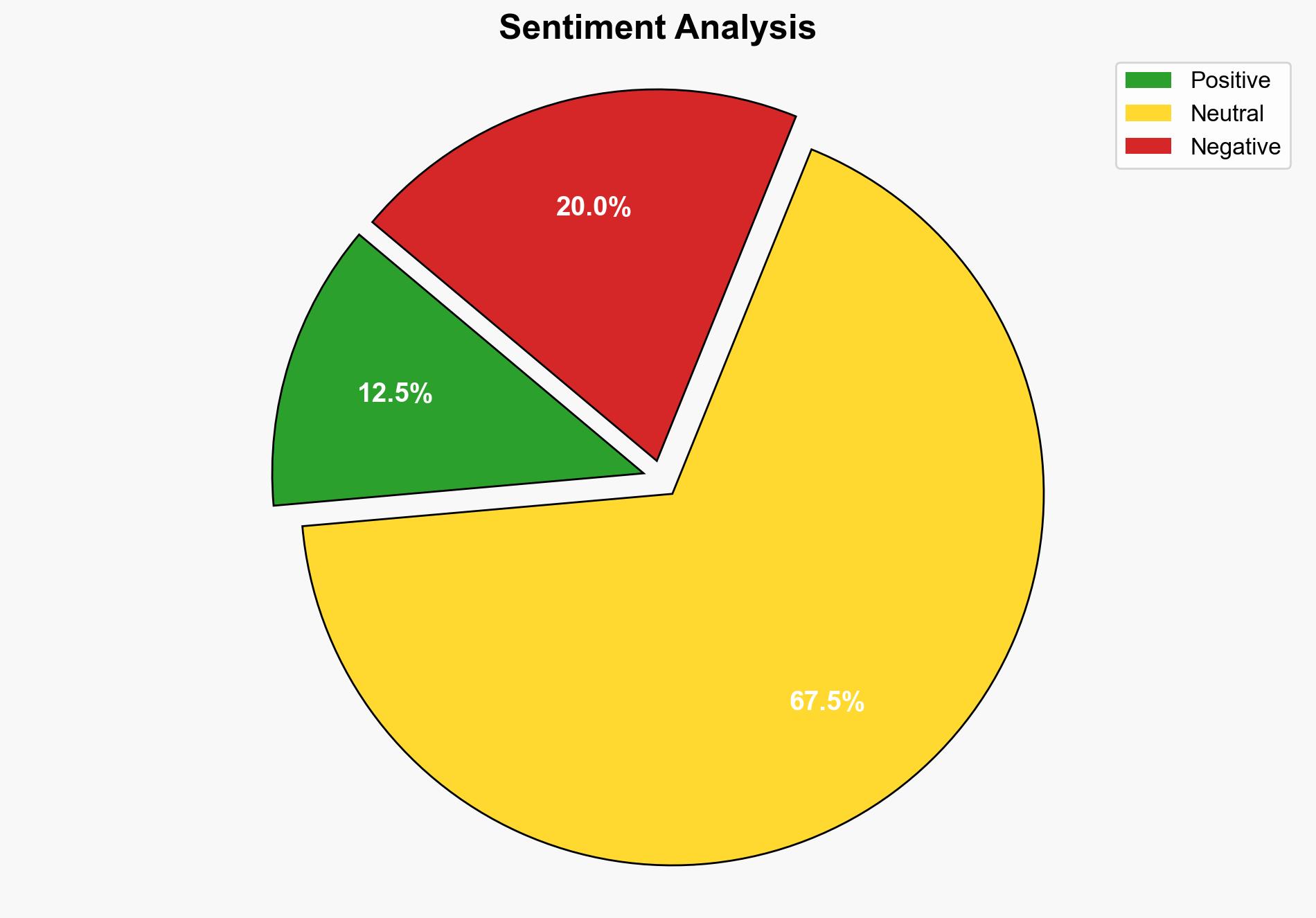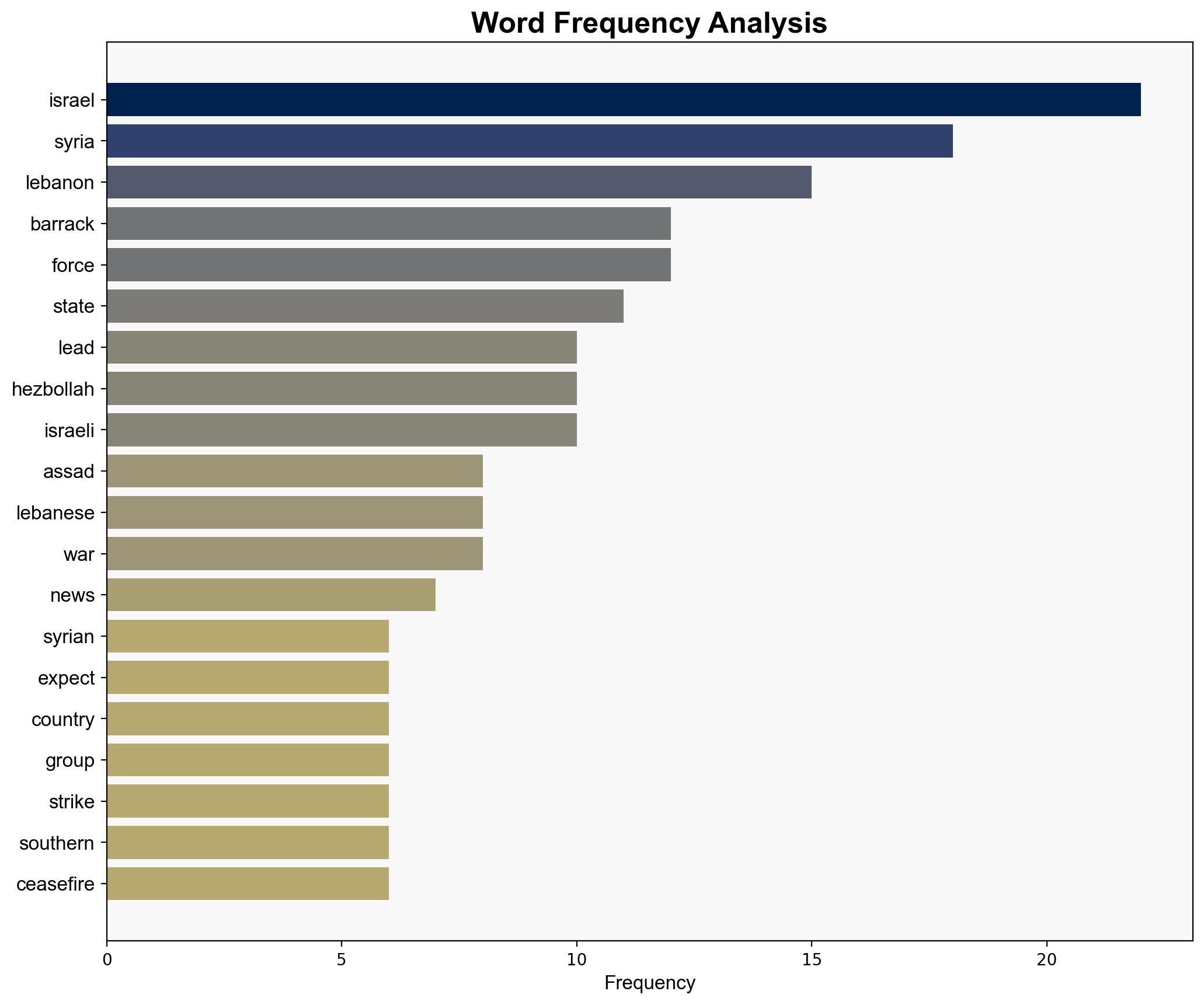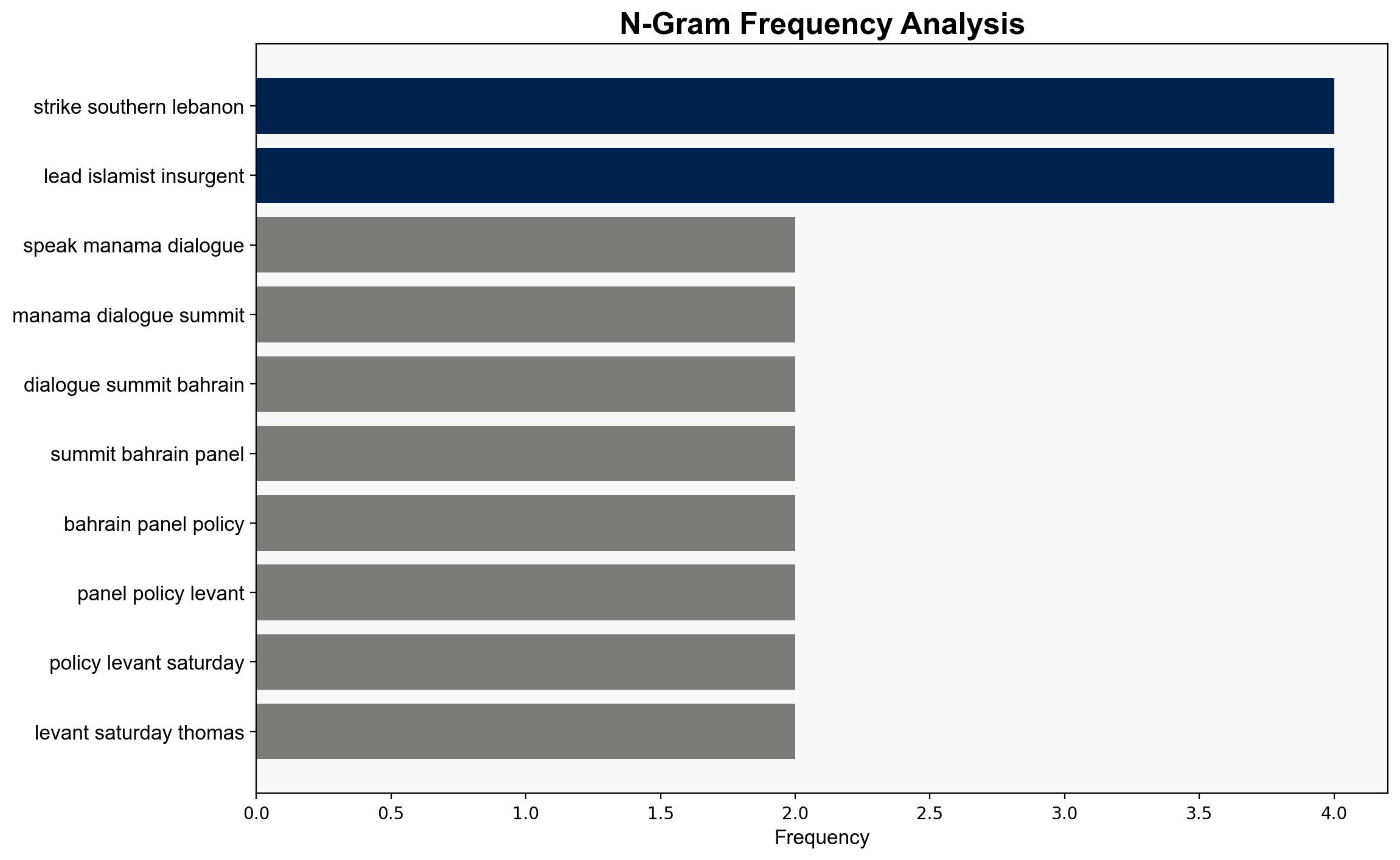US envoy calls Lebanon ‘failed state’ as Syria expected to join anti-IS coalition – The Times of India
Published on: 2025-11-02
Intelligence Report: US envoy calls Lebanon ‘failed state’ as Syria expected to join anti-IS coalition – The Times of India
1. BLUF (Bottom Line Up Front)
The strategic judgment is that Lebanon’s instability poses a significant risk to regional security, while Syria’s potential alignment with the anti-IS coalition could reshape Middle Eastern alliances. The hypothesis that Syria’s involvement will lead to a new regional alignment is better supported. Confidence level: Moderate. Recommended action includes diplomatic engagement with Syria to ensure alignment with Western interests and increased support for Lebanon to stabilize its government.
2. Competing Hypotheses
1. **Hypothesis A**: Syria’s expected participation in the anti-IS coalition will lead to a significant realignment of Middle Eastern alliances, potentially stabilizing the region.
2. **Hypothesis B**: Syria’s involvement is superficial and primarily a strategic move to gain international legitimacy, with limited impact on regional stability.
Using ACH 2.0, Hypothesis A is better supported due to the explicit mention of Syria’s expected role in the coalition and the potential for diplomatic engagement with Israel. Hypothesis B lacks direct evidence and relies on assumptions about Syria’s intentions.
3. Key Assumptions and Red Flags
– **Assumptions**: Syria’s government is genuinely interested in combating IS and aligning with Western powers. Lebanon’s government paralysis is a direct result of external pressures.
– **Red Flags**: The potential for Syria to use coalition involvement as a facade for other agendas. Lack of detailed evidence on Lebanon’s internal political dynamics.
– **Blind Spots**: The role of non-state actors like Hezbollah in influencing Lebanon’s stability and Syria’s regional actions.
4. Implications and Strategic Risks
– **Patterns**: Increased regional tension due to Lebanon’s instability and Israel’s military actions.
– **Cascading Threats**: Potential for Hezbollah’s actions to escalate into broader conflict involving Israel and Syria.
– **Economic Risks**: Disruption of trade routes and economic instability in Lebanon affecting regional markets.
– **Geopolitical Risks**: Shifts in alliances could alter power dynamics, particularly if Syria strengthens ties with Western powers.
5. Recommendations and Outlook
- Engage diplomatically with Syria to ensure its coalition involvement aligns with broader regional stability goals.
- Provide targeted support to Lebanon to address governance issues and reduce external influence from non-state actors.
- Scenario Projections:
- Best: Syria’s coalition involvement leads to reduced IS influence and regional stabilization.
- Worst: Syria’s involvement is a ploy, leading to increased regional tensions and conflict.
- Most Likely: Syria’s involvement results in limited regional realignment, with ongoing tensions in Lebanon.
6. Key Individuals and Entities
– Thomas Barrack
– Ahmad al-Sharaa
– Hezbollah
– Israeli forces
7. Thematic Tags
national security threats, regional instability, counter-terrorism, Middle Eastern alliances




